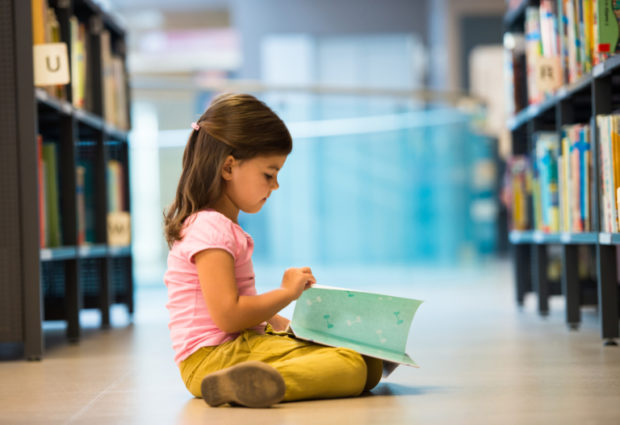Children prefer books which explain how the world works, says new study

Image: Tashi-Delek/IStock.com via AFP Relaxnews
If you’re not sure how to entertain the kids during the current COVID-19 lockdowns, then new United States research has found that giving them books that explain how and why things work could keep them more engaged than a simple storybook.
Carried out by researchers at Vanderbilt University, the new study looked at 48 children aged 3 to 4 years old from Austin, Texas.
The children were asked to listen to an adult reading them two books about animals, which were matched for their content and complexity, but had different amounts of causal information in the story: while one book explained why animals behave and look the way they do, the other simply described animals’ features and behaviors
Afterwards, the children were asked to say which book they preferred.
The findings, published in Frontiers in Psychology, showed that during the readings, the children appeared to be equally interested and enthusiastic in both of the books and understood both to the same degree.
However, when they specifically expressed a preference for a book, they tended to choose the book filled with causal information, which reveals or explains how and why things work as they do.
“We believe this result may be due to children’s natural desire to learn about how the world works,” explains researcher Margaret Shavlik.
“There has been a lot of research on children’s interest in causality, but these studies almost always take place in a research lab using highly contrived procedures and activities,” continued Shavli. “We wanted to explore how this early interest in causal information might affect everyday activities with young children, such as joint book reading.”
The researchers add that the findings could help parents choose books which boost their children’s interest and motivation to learn and read, which in turn can improve their literacy and language skills in early childhood.
“If children do indeed prefer storybooks with causal explanations, adults might seek out more causally rich books to read with children; which might in turn increase the child’s motivation to read together, making it easier to foster early literacy,” said Shavlik. JB
RELATED STORIES:
Young children using smartphones, tablets at risk of speech delays — study
Children who feel connected to nature are also happier, finds new study
For more news about the novel coronavirus click here.
What you need to know about Coronavirus.
For more information on COVID-19, call the DOH Hotline: (02) 86517800 local 1149/1150.
The Inquirer Foundation supports our healthcare frontliners and is still accepting cash donations to be deposited at Banco de Oro (BDO) current account #007960018860 or donate through PayMaya using this link.